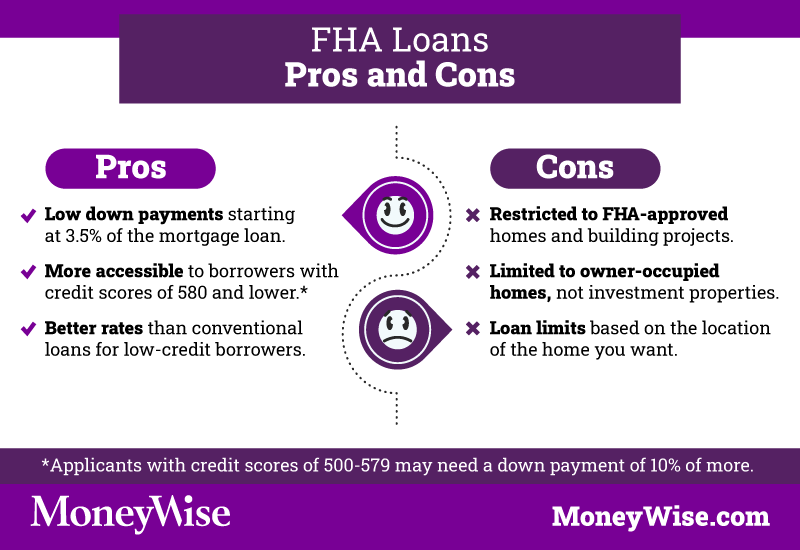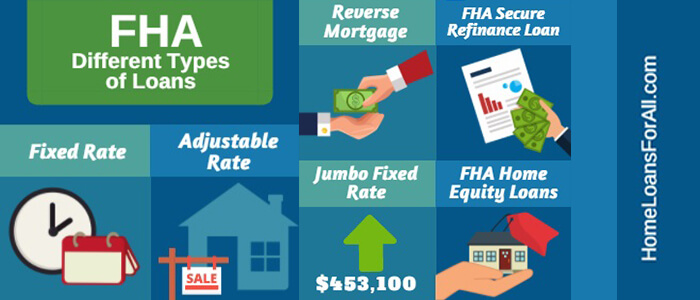Why FHA Home Loans Are a Great Alternative for First-Time Purchasers
Why FHA Home Loans Are a Great Alternative for First-Time Purchasers
Blog Article
The Ultimate Source on Home Loans: A Comprehensive Appearance at Various Lending Programs and Their Advantages for Customers
Browsing the landscape of home lendings can be a challenging task, particularly with the myriad of choices readily available to potential customers. Each financing program-- be it standard, FHA, VA, or USDA-- offers unique advantages that provide to differing financial conditions and homeownership goals.
Recognizing Conventional Finances
Standard financings represent a substantial part of the home financing market, appealing to a wide variety of borrowers as a result of their structured terms and affordable rate of interest prices. These fundings are normally not insured or ensured by the federal government, distinguishing them from government-backed lendings such as FHA or VA loans. Rather, conventional financings are used by private lending institutions, which enables higher adaptability in terms and problems.
Normally, conventional lendings can be found in 2 forms: adapting and non-conforming. Conforming financings follow the standards set by Fannie Mae and Freddie Mac, including limits on car loan amounts, debtor credit report, and debt-to-income ratios. Non-conforming car loans, on the other hand, do not meet these standards and may accommodate consumers with one-of-a-kind financial situations.
Consumers commonly discover that conventional finances supply attractive alternatives for deposits, with some needing just 3% down. Additionally, those with strong credit score accounts may take advantage of reduced rates of interest contrasted to various other choices. On the whole, traditional finances are a feasible choice for lots of buyers, using a blend of price and availability in the competitive housing market.
Discovering FHA Financing Perks
A substantial variety of property buyers transform to FHA loans due to their attractive advantages, particularly for those who might face obstacles protecting conventional funding. The Federal Housing Administration (FHA) insures these financings, making them available for consumers with lower credit rating and smaller down settlements. Commonly, FHA loans call for a down payment of just 3.5% for those with credit rating of 580 or higher, significantly minimizing the upfront expense of purchasing a home.
Additionally, FHA financings have flexible qualification criteria that accommodate a larger variety of financial scenarios. This consists of allocations for greater debt-to-income proportions, allowing consumers with existing debts to get funding (FHA home loans). FHA car loans also permit the usage of gift funds from household participants or companies to cover down repayment and closing costs, easing the economic problem on buyers.

Benefits of VA Loans
VA car loans use numerous benefits for qualified veterans, active-duty service members, and specific members of the National Guard and Reserves. Among one of the most significant advantages is the lack of a down payment need, allowing borrowers to fund 100% of the home's value. This attribute makes homeownership extra available for those who have served in the military.
In addition, VA car loans do not need personal home mortgage insurance coverage (PMI), which can save borrowers significant month-to-month expenses contrasted to standard car loans. The rates of interest on VA fundings are normally reduced than those of other car loan kinds, even more enhancing cost. In addition, VA finances feature adaptable debt requirements, making them an appealing option for individuals who might have less-than-perfect credit histories.
An additional key advantage is the option for experts to obtain beneficial loan terms, consisting of the possibility of re-financing through the Streamline Refinance alternative, which can decrease regular monthly repayments. Finally, VA lendings supply a special feature of assumability, allowing future buyers to take over the loan under the very same terms, which can be a marketing point when reselling the home. In general, VA financings supply crucial advantages that cater especially to the needs of armed forces workers and their families
Insights Into USDA Fundings
Checking out the benefits of USDA car loans discloses a feasible funding option for buyers in country and rural locations. The United States Division of Agriculture (USDA) provides these lendings to advertise homeownership, specifically targeting low to moderate-income households. One of the most substantial benefits is the no down payment need, making it easier for eligible buyers to acquire a home without the concern of a substantial initial investment.
USDA fundings also include competitive interest prices, which often cause reduced regular monthly settlements contrasted to standard funding. Additionally, these car loans do not need private home loan insurance policy (PMI), further decreasing the overall price of homeownership. Borrowers can fund not only the acquisition cost however additionally closing expenses, making it an attractive choice for those with limited financial sources.
Eligibility for USDA fundings is determined by earnings restrictions, which vary by area and house size, guaranteeing that aid is guided to those who need it most. With flexible debt demands, USDA fundings come to a broader array of applicants, fostering community development and stability in country and suv locations. Overall, USDA financings stand for a necessary device for advertising equity in real estate possibilities.
Contrasting Funding Programs

Conventional financings are commonly attractive because of their flexibility and the possibility of staying clear of home mortgage insurance policy with a greater down payment. On the other hand, FHA fundings offer possibilities for consumers with reduced credit history and smaller sized down payments, making them available for novice purchasers. VA financings stick out for veterans and active-duty service members, providing favorable terms such as no deposit and affordable rate of interest.
USDA financings especially deal with country homebuyers, promoting inexpensive housing in much less booming areas with zero down payment choices. Each program has particular eligibility standards, consisting of earnings restrictions and home area limitations, which should be carefully examined.
Ultimately, conducting a detailed comparison of financing programs involves examining passion rates, car loan terms, and closing costs, along with personal economic circumstances. FHA home loans. This calculated method will equip debtors to make informed choices that align with their lasting monetary objectives
Verdict
To conclude, an understanding of numerous mortgage programs is essential for prospective borrowers looking for to make informed choices. see here now Each finance kind, including standard, FHA, VA, and USDA, offers distinct advantages customized to particular economic situations and needs. By assessing the special benefits of these alternatives, individuals can choose one of the most suitable loan that lines up with their homeownership objectives, ultimately helping with an extra easily accessible course to achieving homeownership and monetary security.
These loans are typically not insured or ensured by the federal government, distinguishing them from government-backed financings such as FHA or VA lendings. Adjusting fundings adhere to the guidelines established by Fannie Mae and Freddie Mac, consisting of restrictions on car loan quantities, customer credit score scores, and debt-to-income proportions.Passion rates on FHA fundings often tend to be competitive, supplying borrowers with lower regular monthly settlements contrasted to conventional loans.Additionally, VA loans do not require private mortgage insurance (PMI), which can conserve consumers considerable month-to-month expenses compared to conventional fundings. VA lendings supply an one-of-a-kind function of assumability, permitting future buyers to take over the financing under the same terms, which can be a marketing point when marketing the property.
Report this page